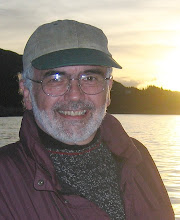Of the 801 Newfoundlanders that left their trenches on July 1, 1916 [at Beaumont Hamel in the opening of the Battle of the Somme] only 69 returned to answer the roll-call [the next morning]. The dead numbered 255, 386 men were wounded and 91 were recorded missing.By the standards of 20th century butcher's bills, these were small numbers. But then Newfoundland was a small place. From a population of about a quarter of a million, 5,482 men went overseas. Nearly 1,500 were killed and 2,300 wounded. These were the cream of Newfoundland's youth - our best and brightest who bravely and naively went off to fight and die for The Empire.
There is a straight line to be drawn between the loss of these young, educated, vital minds and Newfoundland's indebtedness and loss of democracy 17 years later when these dead boys would have been in their prime.
Who knows what those brave boys would have accomplished had they lived. Would Newfoundland have retained her democracy and her independence? We will never know.
What We Might Have Been is a 5-part series recorded and co-produced for CBC Radio by Chris Brookes and Curtis Rumbolt. The documentary was awarded the 2007 Gold World Medal at the New York Festivals.
On the 90th anniversary of the battle of Beaumont Hamel, this documentary series recreates the "war to end all wars", when the independent nation of Newfoundland raised a regiment to fight for Britain in World War One, when the Regiment was virtually wiped out on July 1, 1916 in France, and when the repercussions of that loss later catapulted Newfoundland into losing its independence and becoming a province of Canada.
Newfoundland historian and friend John Fitzgerald:
"In many ways Newfoundland paid three times for the war. It paid in loss of life, it paid in war debts and it paid in loss of democracy. I don't think you'd find any other part of the British empire or I suppose any other part of the world that would have had to pay such a heavy price for its participation in the war."Listen to What We Might Have Been and learn much more about Newfoundland's place in history using the the online resources and suggested bibliography here.
Kevin Major, author of the novel No Man's Land:
"We can picture ourselves at this point in time as a people... and maybe what we might have been. You know, we never know exactly what we might have been, but there is that feeling that we weren't served well by this particular episode, this particular war of Britain's that we entered into with so much optimism and that we fell away from with so much despair."
Lastly, if you are confused about the name of this place, you are not alone. Newfoundland and Labrador is the official place name of this Canadian province now, but in 1916, the island of Newfoundland was an independent country. Labrador would not be added to its territory until 1929. In 1933, Newfoundland was forced by Britain to give up its democratic government. The Newfoundland and Labrador territories became part of Canada in 1949. But these are stories for another day.
In Newfoundland, July 1 is Memorial Day.






